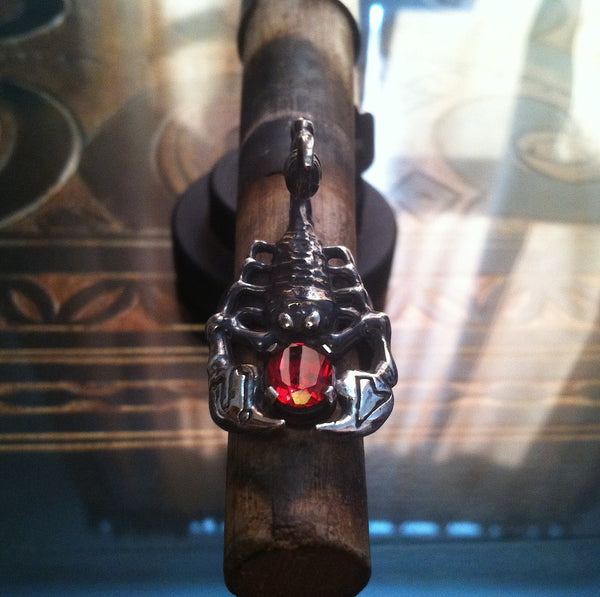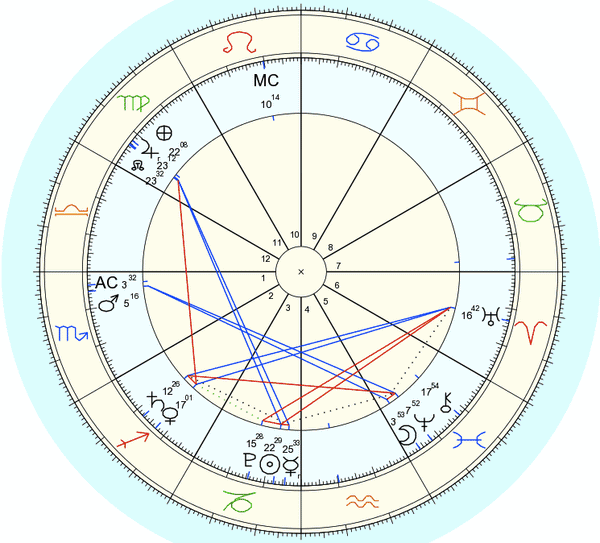



Mars in Scorpio - +11 Mars Talisman
Mars in Scorpio - +11 Mars Talisman
The Mars in Scorpio Talisman was poured in molten silver using the ancient "lost-wax" casting technique at precisely 1:30 AM on January 13 2016, as Mars applied to conjunct the ascendant. An immensely powerful Mars election, the red planet is dignified by Domicile (+5), Triplicity (+3), Term (+2), and face/decan (+1), as well as being in sect. The moon applies within two degrees to trine mars from the 5th house Pisces.
The casting was followed by suffumigation of wormwood and cayenne pepper, and accompanied by three petitions to mars as put forth by the authoritative grimoire of medieval astrological magic, Picatrix or "Gayat Al Hakim" The Goal of the Wise.
Taking the form of the Scorpion, the talisman is set with a rich 3 carat Pyrope Garnet. A stone ruled by Mars. "..[Mars rules] among stones, Garnet, and all stones that are red and dark." -Picatrix, Book III Chapter I
Upon the claws of the Scorpion are engraved the medieval sigils of the intelligence and spirit of mars, as put forth by Cornelius Agrippa in the famed "Three Books of Occult Philosophy. Upon finishing, the entire ring was oxidized black, and the claws and angles re-polished to achieve a striking high contrast.
"With Mars being fortunate ..[the talisman] makes a man potent in war, and judgments, and petitions, and terrible to his enemies, and victorious against them." -Cornelius Agrippa, Three Books of Occult Philosophy, Book II Chapter XXII
The Mars in Scorpio +11 Talismanic Ring arrives in a black suede draw-string pouch, and includes an image of the chart of the talisman's astrological election; as well as a suffimigation mix of wormwood and dried peppers, and a copy of the very petition recited on it's elected casting.
Size 9.5-10
~Of the Powers and Virtues of Mars bestowed unto man: "By Mars, truth, not to be terrified, constant courage and fortitude, fervent desire.. ..the power of action, and an incovertable vehemency of mind." -Cornelius Agrippa, Three Books of Occult Philosophy, Book III Chapter XXXVIII
